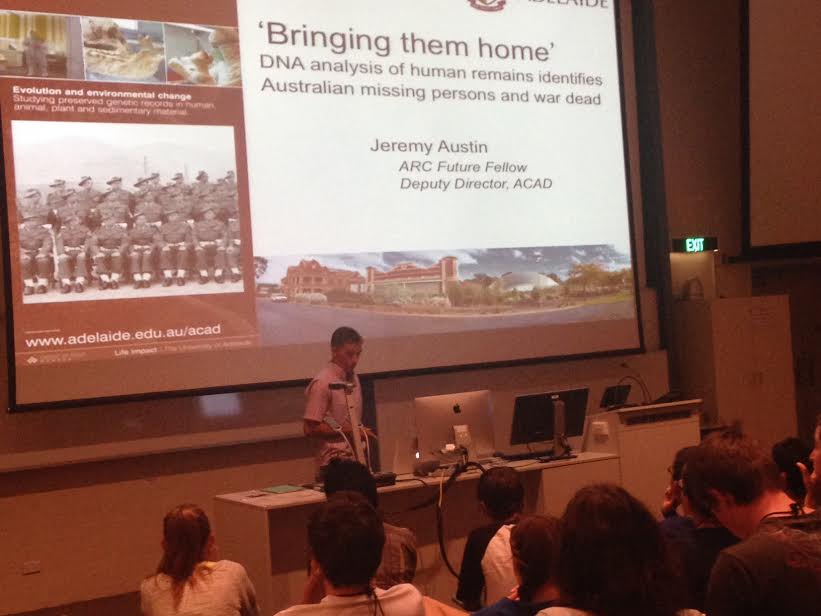Thursday morning of Week 2 for Session A saw the day kick off with a three speaker multi-disciplinary panel, designed to again explore the career and study possibilities available to students who pursue science study and careers, and the different ways they can apply their learnings. .
Ben Sanders from Wildlife Victoria talked about his work in endangered animal conservation and its importance to our society. This sparked a lot of animal enthusiasts and future zoologists to ask questions about how to get involved in animal conservation and how its role will be impacted by further climate change.
Emma Colenbrander continued the theme of inspiring speakers. She spoke about the initiative she helped to start, Pollinate Energy, which works to “provide India’s urban poor with access to basic products and services to make their lives better”. She provided a different perspective for students, encouraging both a career in science while also illustrating that any career can assist humanitarian causes. Most importantly, she showed that young people can achieve change and make a difference in people’s lives.
Dr Jeremy Austin from the University of Adelaide's Australian Centre for Ancient DNA explained his research field of forensic DNA investigation. He too emphasised a message that was consistent throughout Session A 2015: that obtaining a degree in a specific field doesn't dictate where your career will take you. Rather it's the decisions you make that dictate where your career will go.

Dr Austin started his career with a Science degree at the University of Tasmania, but, “I never would have imagined that I would have end up where I am today.” His work involves analysing human remains of unknown origin, and using DNA sequencing techniques, such as Mitochondrial DNA mapping, to identify the people to whom they once belonged. One important case he worked on was the identification of Queensland school boy, Daniel Morcombe.
These three very different areas of scientific endeavour again emphasised to the students the multiple career options that are available and that changing courses and even careers is a real possibility for their futures
By Brett Slarks